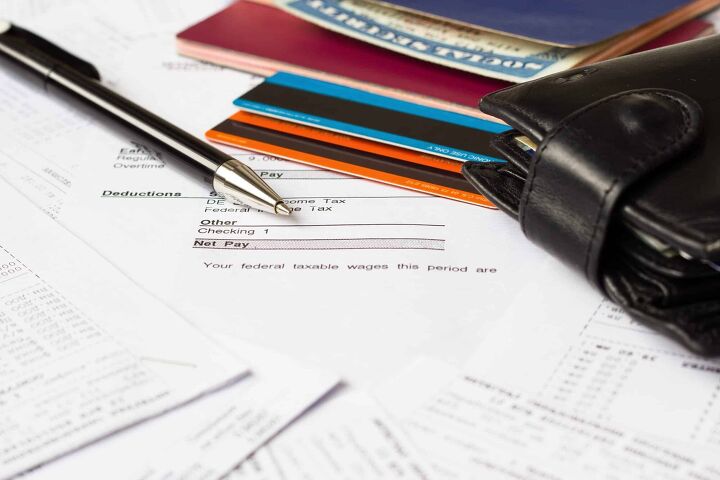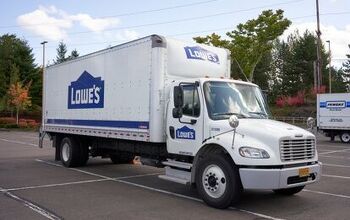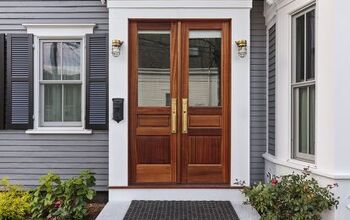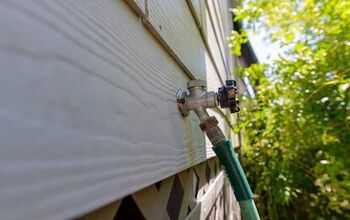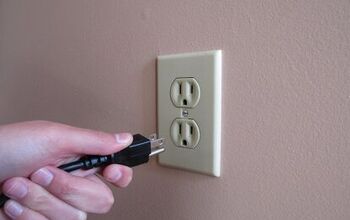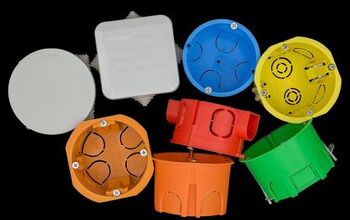How To Prove Residency Without Bills (In 10 Easy Ways!)

What do interviewing for a job, applying for a loan, and enrolling in college all have in common? You have to prove your residency, and merely showing your ID won’t cut it. Typically, you need two different identification forms, such as your license and a utility bill with your current address.
To prove residency without bills you can use a driver’s license, tax records, financial statements, voter registration, or court documents. You can also use your vehicle registration, any home-related paperwork, government documents, insurance documents, education transcripts, or pay stubs. You usually need two forms of identification to prove residency and both forms must include your name and address.
While proving your residency without utility bills might require a little extra effort on your part, it’s pretty simple. Of course, this is assuming you’re an actual resident.
What Makes You a Resident?
In some cases, simply showing proof that you live somewhere is all you need to be considered a resident. On the other hand, many times, you have to meet a specific timeline.
For example, if you are applying for college, you usually need to prove that you have lived in the state for at least a year. In other situations, institutions might ask you something like, have you lived at this address for at least two years? If not, then the organization will likely follow up by asking for your previous address.
What If You Need To Establish Residency in a New State?
If you move to a new state, it’s essential to establish your residency as soon as possible. But what makes you a resident? In most cases, it’s if you spend over half the tax year in a state and have a primary place of residence.
All states have different processes for claiming your official resident status, but they typically follow the same pattern. Some states have a Declaration of Domicile form that you must fill out, claiming you are now a resident of that state. Then, you usually have a specific window of time to obtain a driver’s license.
You also must register your vehicle in the state and register to vote with your new address. Likewise, it’s essential to file your taxes in your new state and open a local bank account. If you own a home, you also need to apply for your state’s homestead exemption.
Once you’ve officially established your residency, you’re good-to-go, right? Well, almost…you still need to be able to prove it. Normally, your license and a utility bill will do the trick, but what if you don’t have any utility bills?
So, You Don’t Have Any Utility Bills…
Utility bills are widely accepted as proof-of-residency, but there are many situations where you might not get these bills. For example, you could live with your parents or someone else, or rent an apartment with included utilities.
Another possibility is if you typically pay your bills online and are enrolled in paperless billing with your utility companies. Many places might not accept a printed copy from your computer.
Ways To Prove Residency Without Utility Bills
Aside from the obvious driver’s license, here are several ways to prove your residency:
1. Financial Paperwork
Most financial papers, like credit card statements, bank statements, and tax documents, are acceptable forms of proof-of-residency. You can potentially print out a PDF on your computer. But, if the entity requesting verification won’t accept a PDF, you’ll need to do some extra legwork.
Stop into your bank’s local branch, and request a printed statement. Make sure you let them know you need it for residency purposes, so you get something showing your address.
If you have more time, you can call your bank or credit card company and have them mail your statement. Or, you can cancel your paperless statements temporarily, so you receive a hard copy in the mail.
2. Tax Returns & Records
You can also use your W-2s or copies of your federal or state income taxes if you have already filed. All of these documents should contain both your name and your address. If you no longer have a copy for some reason, check with your employer.
If your employer cannot provide you with your lost W-2, you can contact the IRS directly for a wage and income transcript. This transcript won’t contain state and local information, but it includes your name and address, which is all you need.
Alternatively, you can request a copy of your W-2 from the Social Security Administration for a fee of $81. Again, if you need to prove residency quickly, this may or may not be an option for you.
3. Court or Government Documents
Correspondence from an official county, city, state, or other government agency that includes your name and address is viable proof-of-residency. These documents could be marital records, letters from social security, and even mail from the DMV (hopefully not parking tickets)!
If you haven’t already done so, fill out a change-of-address form at the Post Office if you’ve recently moved. The United States Postal Service will mail you a confirmation letter with your new address. First, just make sure this letter is on the list of acceptable forms of verification.
4. Voter Registration Documents
If your voter registration card contains your address, you might be able to use it as proof-of-residency. If you recently moved, register to vote with your new address. (You’re required to update your registration card anyway).
When you receive your new card, if it doesn’t feature your address, the envelope it came in might work.
5. Homeowner’s Insurance or Mortgage Statement
You can use your declaration page or other correspondence from your homeowner’s insurance company to prove residency. Likewise, policies for flood insurance or other forms of protection for your domicile can work.
You can also use a copy of your mortgage statement or a lease agreement as long as your name is on it. Or, use a receipt for your most recent property or real-estate taxes. Keep in mind that these items need to be relatively current and should contain a recent date.
If you live with someone else, you can get a residency affidavit form, and someone you live with can complete it. Many government agencies and financial institutions will accept these forms but check with them first.
The agency might have their own form they want you to use. If not, you can usually find an acceptable form online.
Note: If you still live with your parents, they can write and sign a letter declaring you still live in their house. Your parents will also need to provide their own proof-of-residency.
6. Health & Life Insurance Policy
Like your homeowner’s insurance documents, you can also prove your residency with other insurance policies. However, it must be the official paperwork, not wallet cards. For example, you can submit paperwork from your health, life, or automobile policies.
7. Car Registration
Often, you can show your vehicle registration as proof-of-residency, provided it is up-to-date. If, for some reason, you don’t have a current copy, request a duplicate from the DMV.
In many states, it is relatively simple to get a duplicate registration certificate. In most cases, you can complete the whole process online and print your registration. This service’s cost varies by state and can be as low as $3 to $12 or more.
8. Pay Stub
You can use your actual pay stub (not a copy) as proof-of-residency, or your employer might be able to write a letter on your behalf. The letter from your employer might need accompanying paperwork, like a copy of your job application or other means of proof.
The letter must also be on the company letterhead; otherwise, it must be notarized. You can also use your work ID badge, if applicable, as long as it includes your address.
9. School Transcript
You can request an official transcript from your high school or university. The institution will mail the transcript to your address, and you can use the sealed envelope as your proof-of-residency.
10. Other Licenses
According to the City of Milwaukee, you may be able to use your hunting license or conceal carry license as proof of residency. These are a bit odd, but they may just be enough to get it done.
When Do You Need To Prove Residency?
There are several different scenarios in which you need to prove residency. Although various states and counties have different requirements, most places ask for some form of proof showing where you live.
Here are some examples of situations where you will typically need to prove your residency:
- Applying for a new job
- Getting a new driver’s license, driver’s permit, or ID card
- Applying for a loan
- Setting up utilities in a new home
- Applying for college (to prove residency, so you don’t have to pay out-of-state tuition costs)
- Registering your children for public school
Depending on the exact situation, your photo ID with an address might be all that you need. In other cases, you will need a secondary form of proof.
Timeline of Documents
In most cases, the paperwork you provide needs to be within the past four months. In the case of tax documents, they must be from the current tax year. However, every institution has its own requirements.
For example, a one-year-old mortgage statement might suffice if the address matches your current driver’s license. Ask first.
Do You Need a Notary?
Most of these forms of residency proof are sufficient on their own. However, some types of proof-of-residency require a notary’s signature. In most cases, if you use a letter from someone as proof, you will need to have it notarized.
You also must get residency affidavit forms notarized. If you are unsure whether you need a notary public’s services, find out from the institution requesting the verification.
Where Can You Find a Notary?
You can do an internet search to find a notary near you. Also, many banks offer notary services, as well as large-chain supermarkets.
You’re also likely to find a notary at many law offices, real-estate agencies, and packaging and shipping supply stores. In some cases, if you can’t get to a notary’s location, there are those who will come to you.
Ready to Prove Your Residency Without Bills?
No matter why or how you have to prove your residency, always get the facts first. Know what the requesting institution accepts as proof and the timelines for specific documents. Knowing this information ahead of time can save you a lot of time and effort!

Stacy Randall is a wife, mother, and freelance writer from NOLA that has always had a love for DIY projects, home organization, and making spaces beautiful. Together with her husband, she has been spending the last several years lovingly renovating her grandparent's former home, making it their own and learning a lot about life along the way.
More by Stacy Randall



